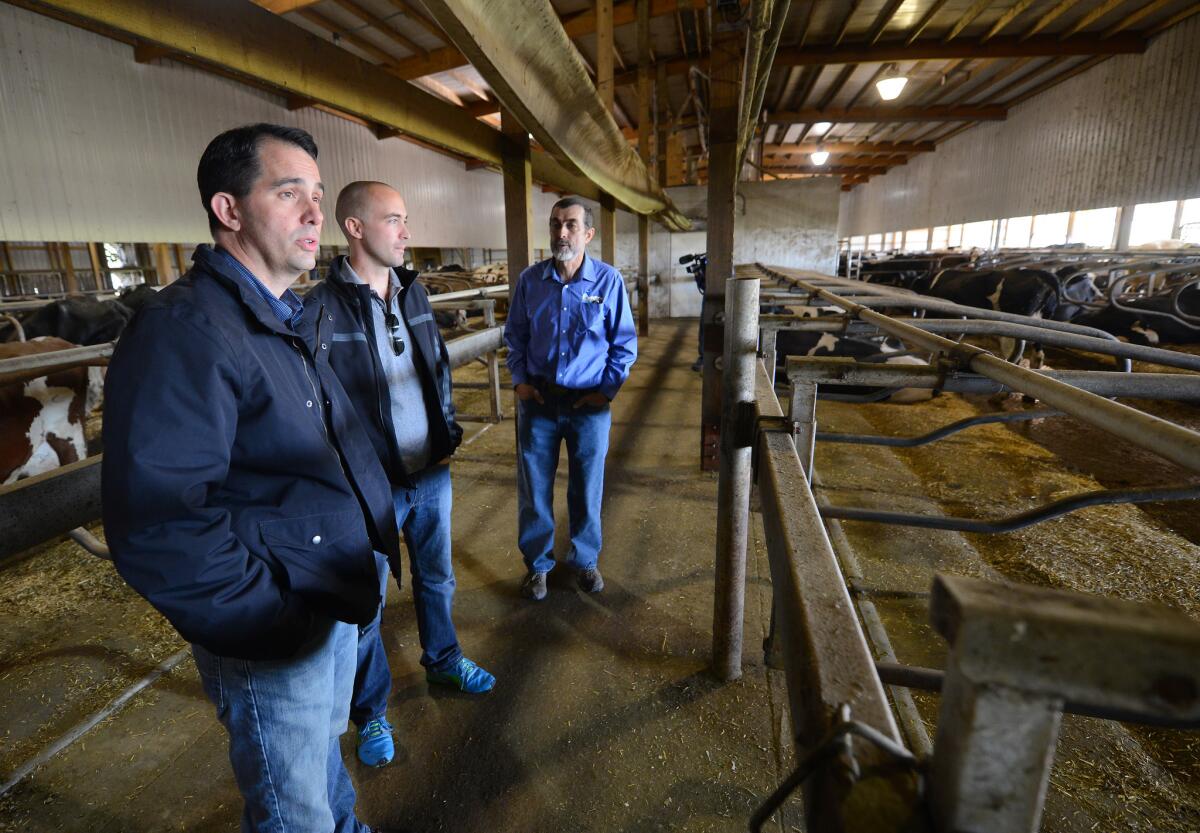Wisconsin and Texas voter ID laws blocked by courts

Reporting from Washington — The U.S. Supreme Court late Thursday blocked Wisconsin from enforcing its strict voter identification law in November’s election.
By a 6-3 vote, the justices granted an emergency appeal from civil rights lawyers, who argued it was too late to put the rule into effect this year.
Lawyers for the ACLU noted that the state had already sent out thousands of absentee ballots without mentioning the need for voters to return a copy of their photo identification.
It would be “chaos,” they said, for Wisconsin to have to decide whether to count such ballots now because voters had failed to comply with the new law.
Justices Samuel A. Alito Jr., Antonin Scalia and Clarence Thomas dissented. The six justices in the majority did not issue a written opinion to accompany the decision to lift an order by a lower court that would have allowed the law to take effect.
At nearly the same time, a federal judge in Texas struck down that state’s new voter ID law on the grounds that it violated the constitutional right to vote and discriminated against racial minorities.
Texas Atty. Gen. Gregg Abbott said the state would appeal.
The Wisconsin and Texas cases were the two most closely watched tests of new voter rules this year. In both states, Republican-led legislatures sought to tighten the rules for voting and to require all registered voters who did not have a driver’s license to obtain a photo ID card at a state motor vehicles office.
Civil rights lawyers in Texas said more than 600,000 of its registered voters did not have the required identification.
In Wisconsin, Gov. Scott Walker, a Republican and a strong supporter of the voter ID rule, is locked in a tight race for reelection. Democrats feared the law would block some of their supporters from the polls, although the potential impact remains uncertain.
Wisconsin’s Legislature adopted the photo ID rule three years ago, but until last month the requirement had been put on hold by state and federal judges.
The issue has divided legislatures on partisan grounds, with Republicans solidly supporting the requirement and most Democrats opposing it. In the Wisconsin case, the issue divided judges along the same lines.
In April, U.S. District Judge Lynn Adelman, a Democratic appointee, blocked the voter ID rule. He said more than 300,000 of Wisconsin’s registered voters — 9% of the electorate — did not have a current driver’s license or U.S. passport that would allow them to cast a ballot.
Voters who are poor, elderly, black or Latino would be more likely to be affected by the new rule, he said. To obtain a voting card, residents lacking a photo ID were told to go to a state motor vehicles office and present a birth certificate.
On Sept. 12, a three-judge panel of the U.S. 7th Circuit Court of Appeals in Chicago lifted Adelman’s order and said Wisconsin could enforce the photo ID rule this year. The judges on the panel, all of whom were Republican appointees, discounted the significance of the rule. Besides, they said, voters had had three years to prepare for it.
The full appeals court then split, 5 to 5, on whether to reconsider the panel’s decision.
Lawyers for the American Civil Liberties Union filed an emergency appeal with the Supreme Court, arguing that the election was too near to impose such a change in the voting rules.
Putting the requirement into effect now would “sow confusion at the polls and suppress voting in the Nov. 4 general election in Wisconsin,” they said. “Chaos in an election — especially when entirely preventable — is undemocratic.”
Wisconsin Atty. Gen. J.B. Van Hollen, a Republican, urged the justices to reject the appeal. He said that “only a small percentage of voters still lack ID” and that “this focus on a small fraction of the electorate is not an adequate justification” to prevent enforcing the rule now.
Determining the impact that the rule might have had on the election is difficult. The number of people without photo IDs may be lower now than when Adelman issued his order. In addition, the turnout of poor and minority voters tends to drop disproportionately in midterm elections, so many who don’t have an ID might not have voted anyway.
The state’s leading public opinion survey, the Marquette University poll, found last week that just over 1% of registered voters in the state said they did not have a “currently valid photo ID such as a Wisconsin driver’s license, U.S. passport or military ID card,” but among likely voters, that share dropped to less than half a percent.
Twitter: @DavidGSavage
More to Read
Sign up for Essential California
The most important California stories and recommendations in your inbox every morning.
You may occasionally receive promotional content from the Los Angeles Times.











